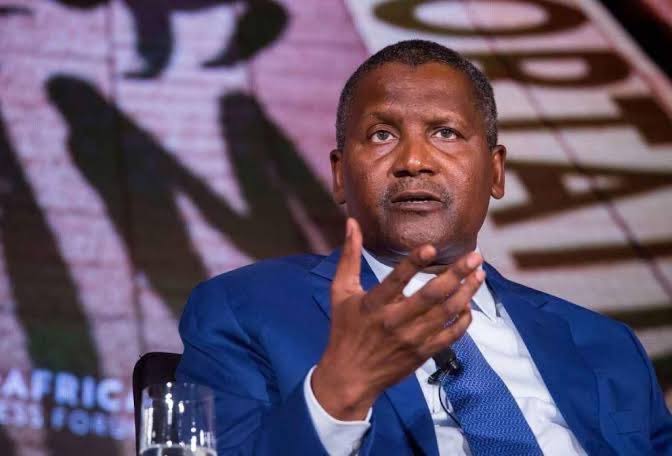Aliko Dangote, Africa’s richest man and the visionary behind the Dangote Group, is reshaping Nigeria’s economic future with projects that promise transformative benefits for millions. From slashing fuel prices to creating thousands of jobs and elevating Nigeria’s global trade profile, Dangote’s initiatives are more than business ventures—they’re a lifeline for a nation striving for self-sufficiency. Here’s an in-depth look at how his ambitious projects, particularly the colossal Dangote Refinery and an upcoming mega seaport, are delivering unprecedented benefits to Nigerians.
Fueling Nigeria’s Future: The Dangote Refinery’s Impact
At the core of Dangote’s contributions is the $19 billion Dangote Refinery, a 650,000-barrel-per-day facility revolutionizing Nigeria’s energy sector. For decades, Nigeria, Africa’s largest oil producer, relied heavily on imported petroleum products, draining foreign exchange reserves and leaving citizens vulnerable to volatile fuel prices. The refinery, located in the Lekki Free Trade Zone, is rewriting this narrative.
Since commencing operations, the refinery has significantly reduced petrol prices, with recent cuts bringing costs to between N875 and N905 per litre, depending on the region. This relief is a game-changer for Nigerians grappling with rising living costs. Supplying 60% of Nigeria’s petrol needs, the refinery is reducing dependence on imported fuel, stabilizing prices, and shielding consumers from global market fluctuations. For the average Nigerian, this means lower transportation costs, cheaper goods, and more disposable income—a ripple effect touching every corner of society.
Beyond petrol, the refinery produces jet fuel, diesel, and other products, with exports already reaching markets like the United States. This generates foreign exchange and positions Nigeria as a key player in the global energy market. A recent partnership with Vinmar Group to export polypropylene, a critical material for the textile industry, is expected to save Nigeria $267 million annually by reducing imports. This strengthens local industries, creates jobs, and bolsters economic resilience.
Job Creation and Industrial Transformation
Dangote’s vision extends far beyond oil. His investments in cement and fertilizer production have made Nigeria self-sufficient in these sectors, transforming the country into a net exporter. Dangote Cement Plc, a cornerstone of the group, has met domestic demand and supplied cement to neighboring countries, generating revenue and jobs. Similarly, the Dangote Fertilizer Plant, one of the world’s largest, has revolutionized agriculture by ensuring a steady supply of affordable fertilizers, boosting crop yields for farmers and enhancing food security.
These industries have created tens of thousands of direct and indirect jobs, from factory workers to logistics providers. For young Nigerians facing unemployment rates around 40%, these opportunities are a beacon of hope. The multiplier effect of these jobs—spanning construction, manufacturing, and supply chains—has injected vitality into local economies, particularly in regions hosting Dangote’s facilities.
A New Seaport to Boost Trade
Dangote’s latest announcement has sparked excitement across Nigeria’s business community: plans to build the country’s largest seaport at the Olokola Free Trade Zone in Ogun State. This ambitious project aims to tackle Nigeria’s chronic port congestion and high logistics costs, which have long stifled trade. By creating a world-class maritime hub, Dangote is poised to lower shipping costs, improve export efficiency, and attract foreign investment. The seaport is expected to create thousands of jobs, from construction to operations, and position Nigeria as a regional trade powerhouse.
This project aligns with Dangote’s broader vision of infrastructure as a catalyst for economic growth. By complementing the refinery’s export capabilities, the seaport will streamline the movement of goods like jet fuel, polypropylene, and cement to global markets, further boosting Nigeria’s foreign exchange earnings.
Saving Foreign Exchange and Challenging Cartels
One of Dangote’s most significant contributions is conserving Nigeria’s scarce foreign exchange reserves. By producing critical goods locally, the Dangote Group has drastically reduced the need for imports, saving billions of dollars annually. The refinery alone is expected to cut Nigeria’s fuel import bill by a substantial margin, freeing up resources for infrastructure, healthcare, and education.
Dangote’s efforts have not been without challenges. His push to dismantle the powerful oil importation cartel has sparked tensions, with some accusing him of seeking market dominance. However, supporters argue that his disruption of entrenched interests is a necessary step toward a more competitive and consumer-friendly energy sector. The Nigerian government has praised Dangote’s patriotism, noting that his $19 billion investment in the refinery could have earned him $120 billion if invested in global tech giants like Microsoft or Amazon. Instead, he chose to bet on Nigeria’s future, a decision already yielding dividends.
The recent resolution of disputes with the Nigerian National Petroleum Company Limited (NNPCL) and the revival of the Naira-for-Crude initiative ensure a stable crude supply to the refinery, further stabilizing fuel prices. This counters earlier setbacks, such as the temporary suspension of the Naira-for-Crude deal, and underscores Dangote’s commitment to working with the government to deliver benefits to Nigerians.
A Taxpayer Powerhouse
In 2024, the Dangote Group paid over N402.3 billion in taxes, making it one of Nigeria’s top taxpayers. These funds are critical for public services, from road construction to healthcare improvements. By contributing significantly to the national treasury, Dangote is indirectly supporting the welfare of millions of Nigerians, even as his businesses create direct economic benefits.
Challenges and Criticisms
Despite the undeniable benefits, Dangote’s growing influence has raised concerns about market dominance. Critics warn that his control over key sectors like cement, fuel, and fertilizers could lead to monopolistic practices, potentially stifling competition and limiting consumer choice. Others argue that his success is a testament to what Nigeria can achieve with visionary leadership and that his investments are a net positive for a country long plagued by economic mismanagement.
The government and regulatory bodies will need to balance fostering competition with supporting Dangote’s nation-building efforts. For now, the tangible benefits—lower fuel prices, job creation, and export growth—outweigh the concerns for many Nigerians.
Join our Whatsapp channel to stay updated always!




